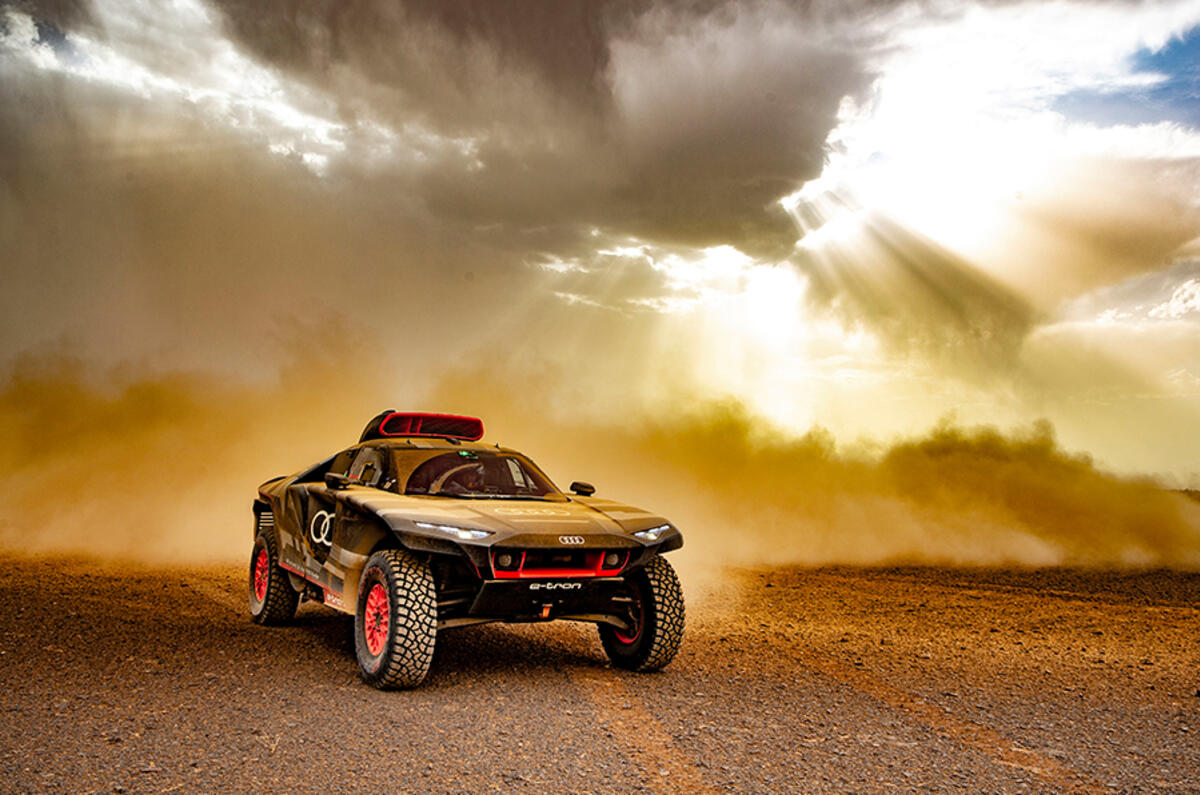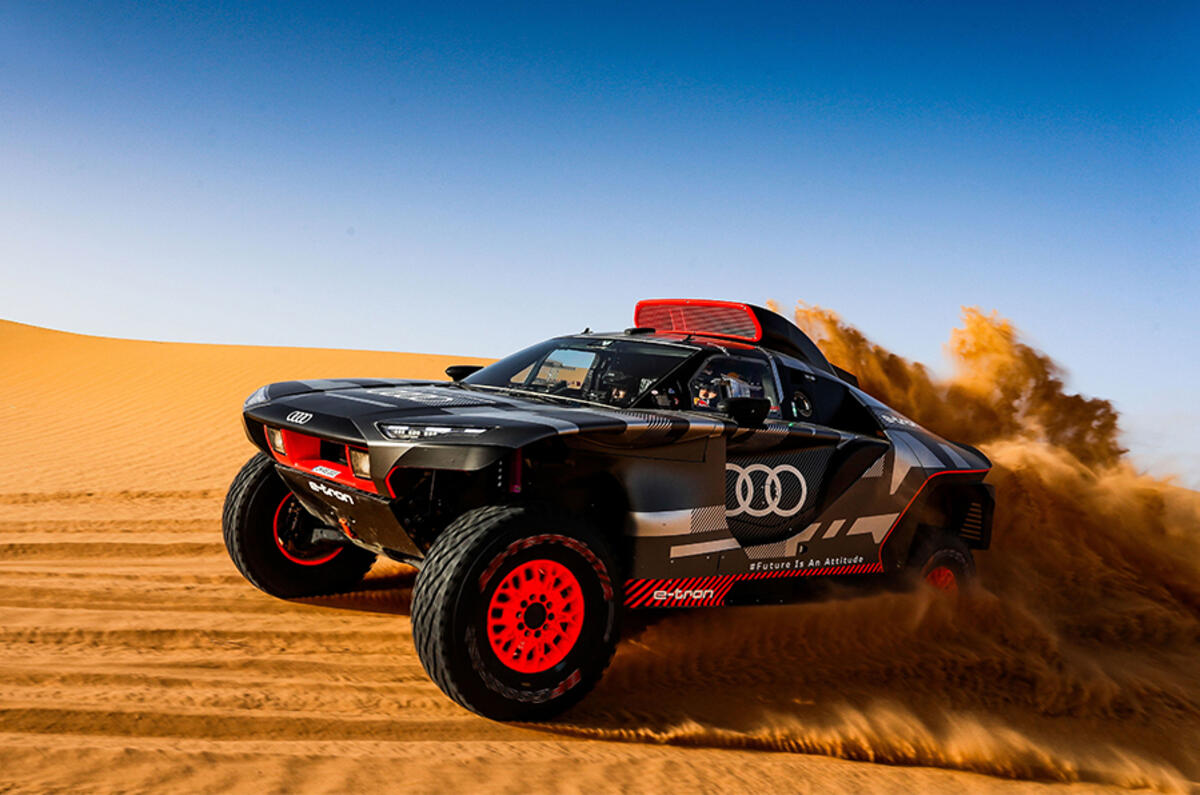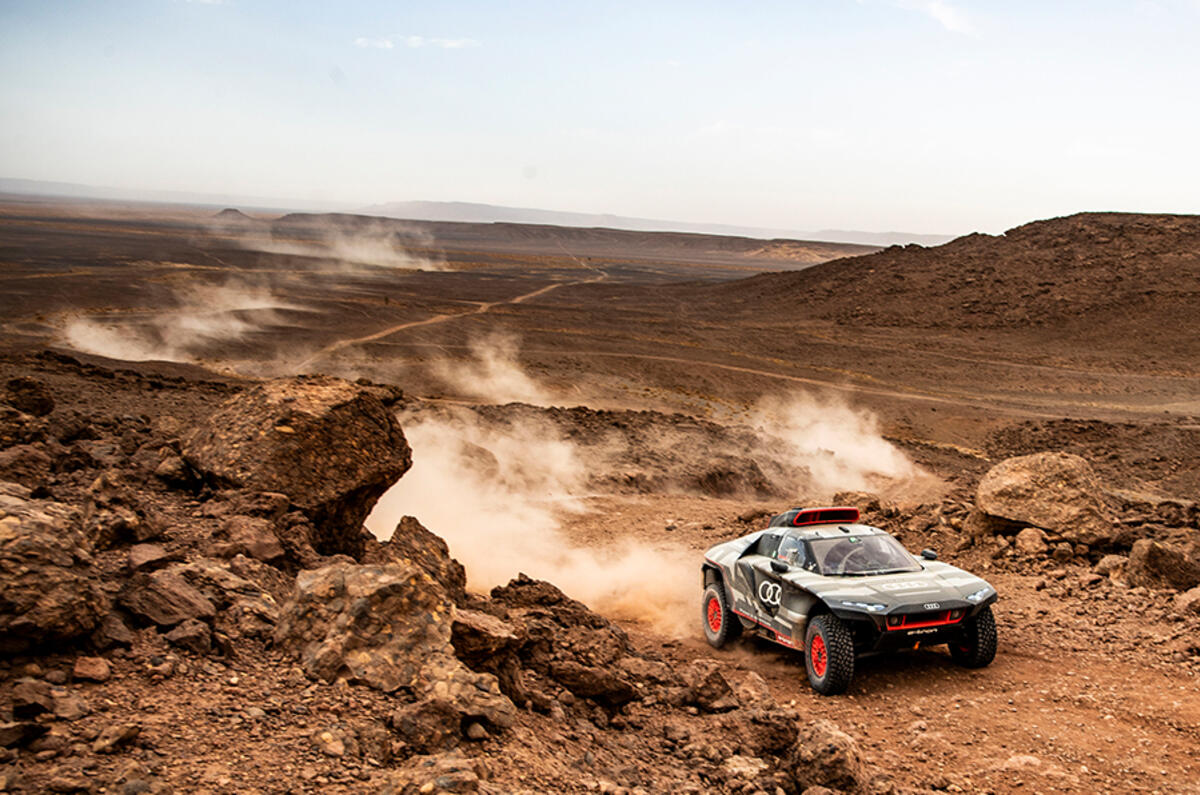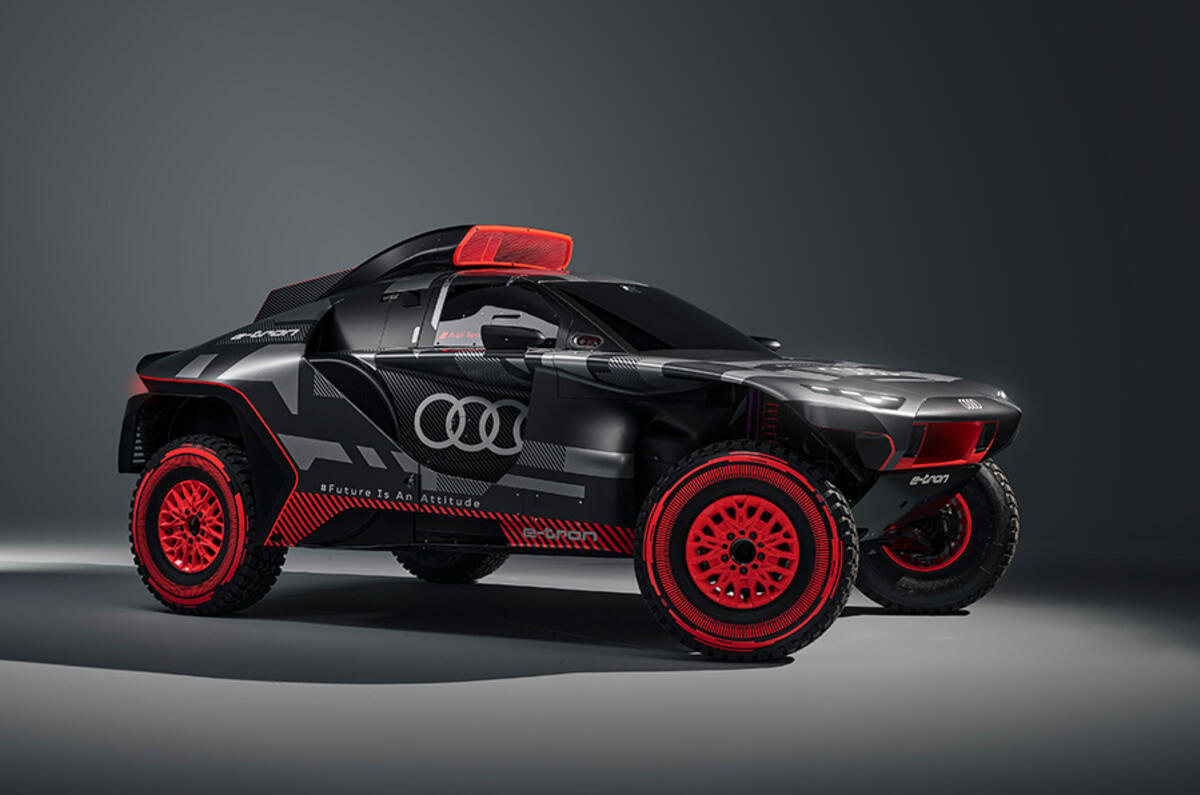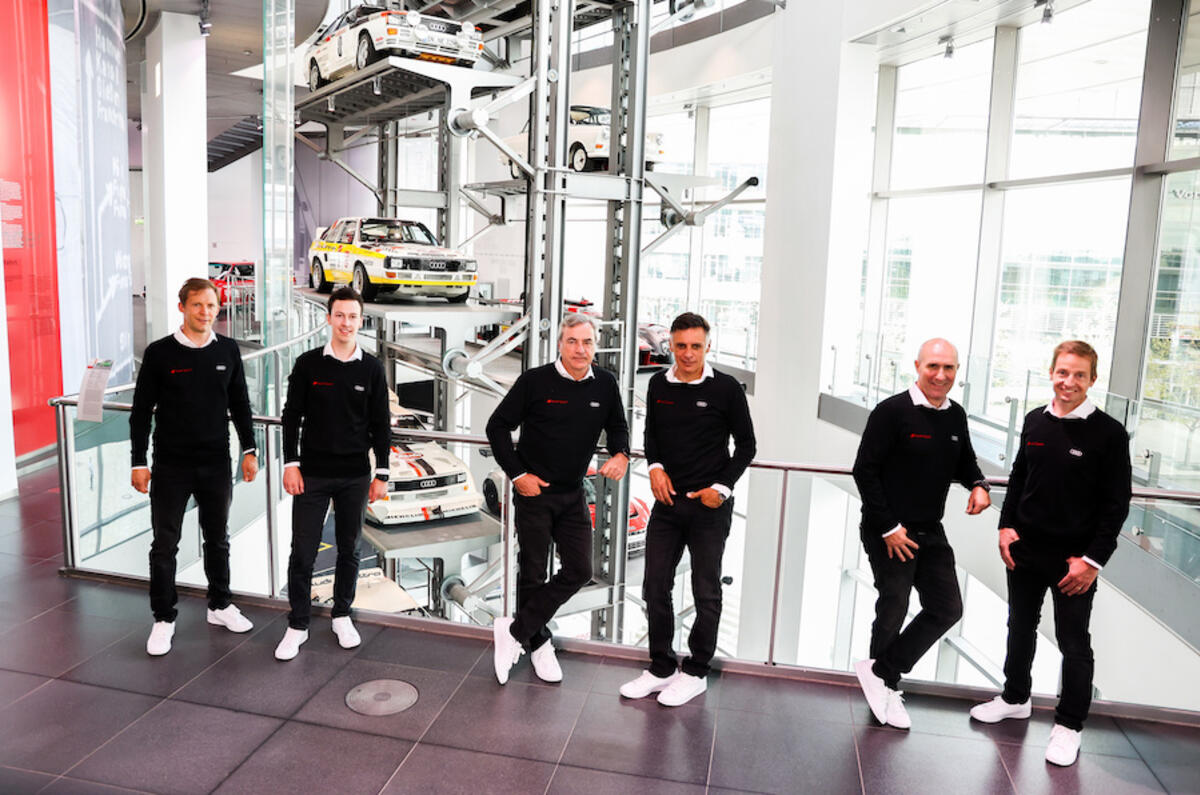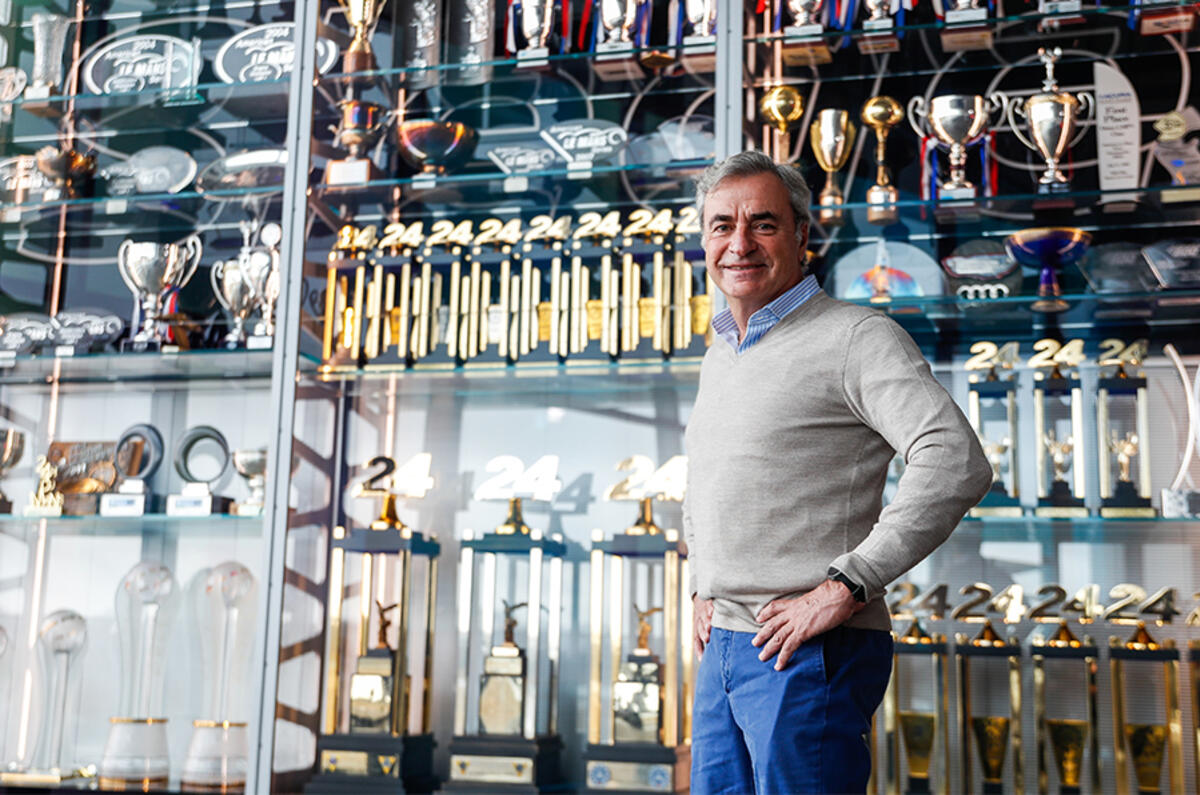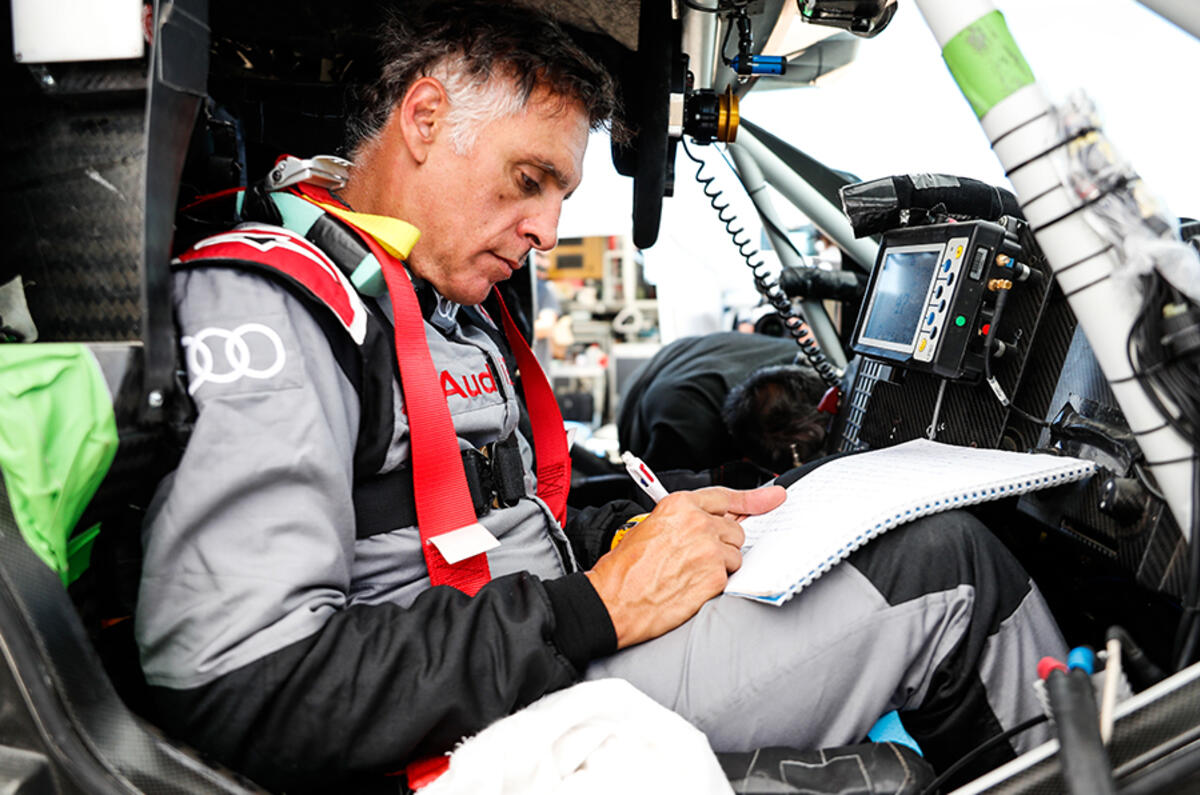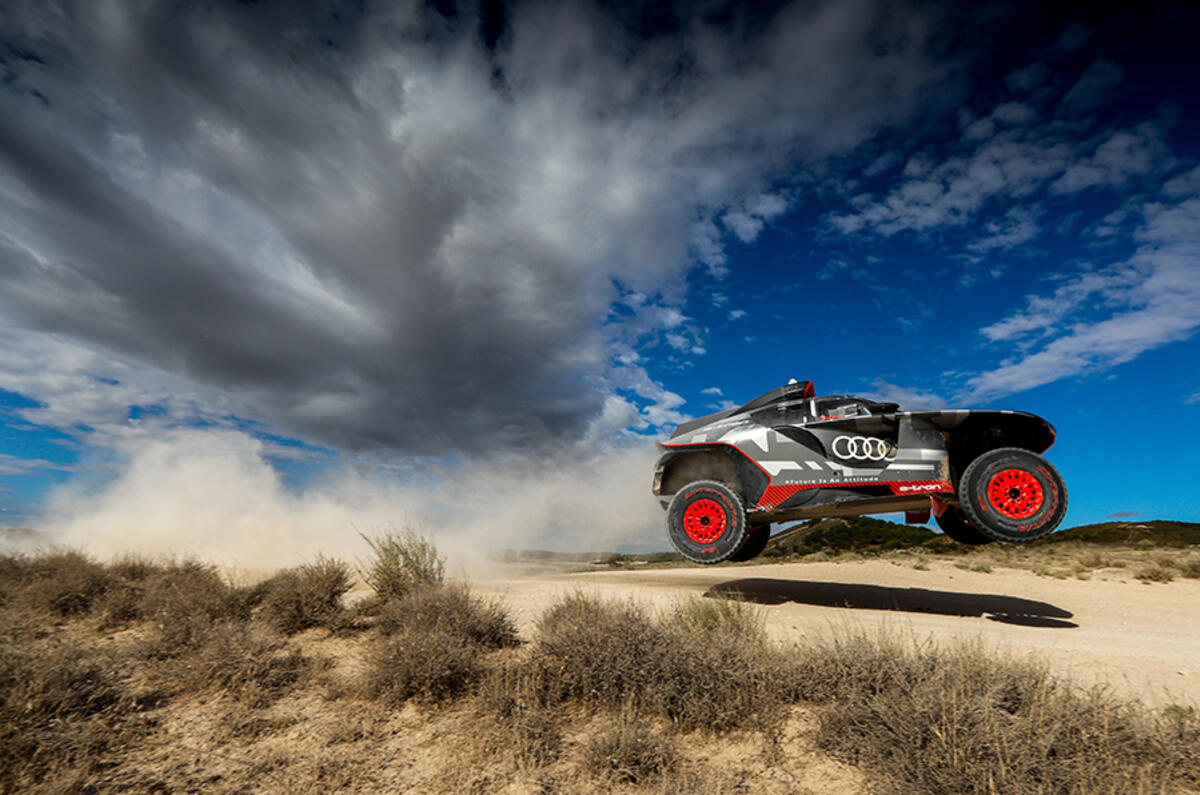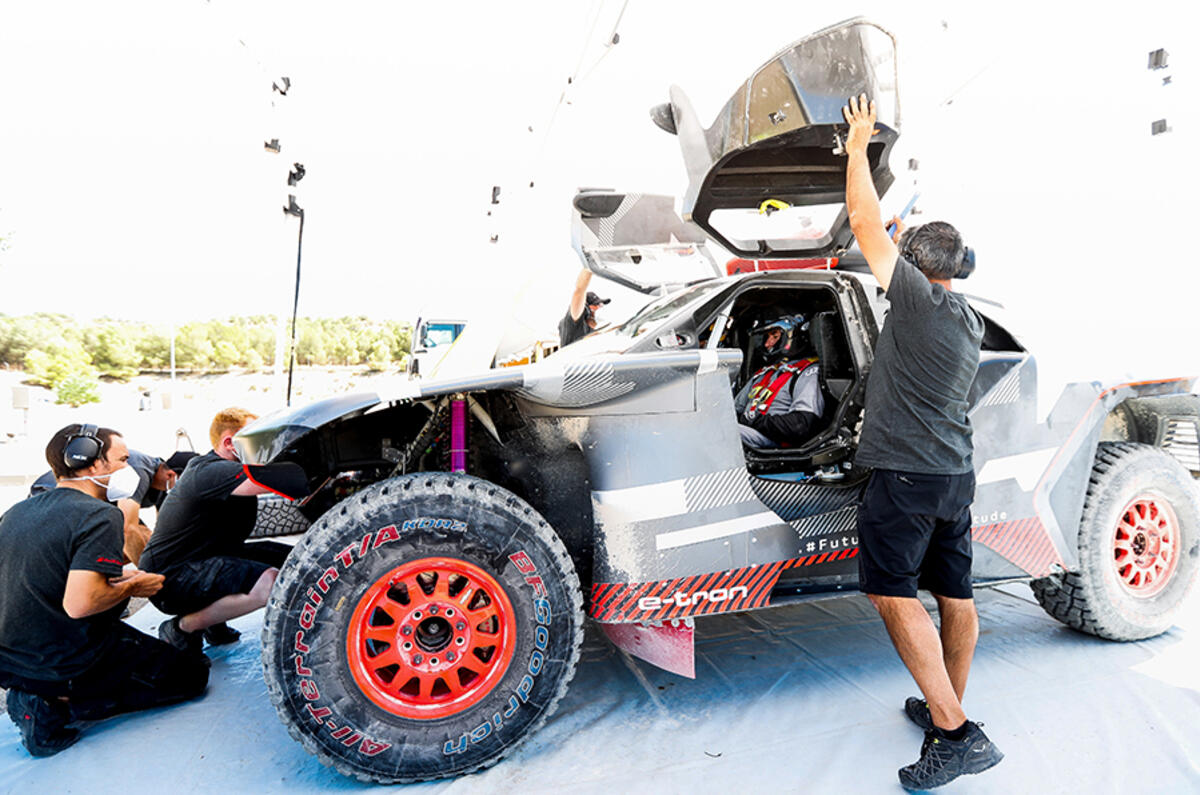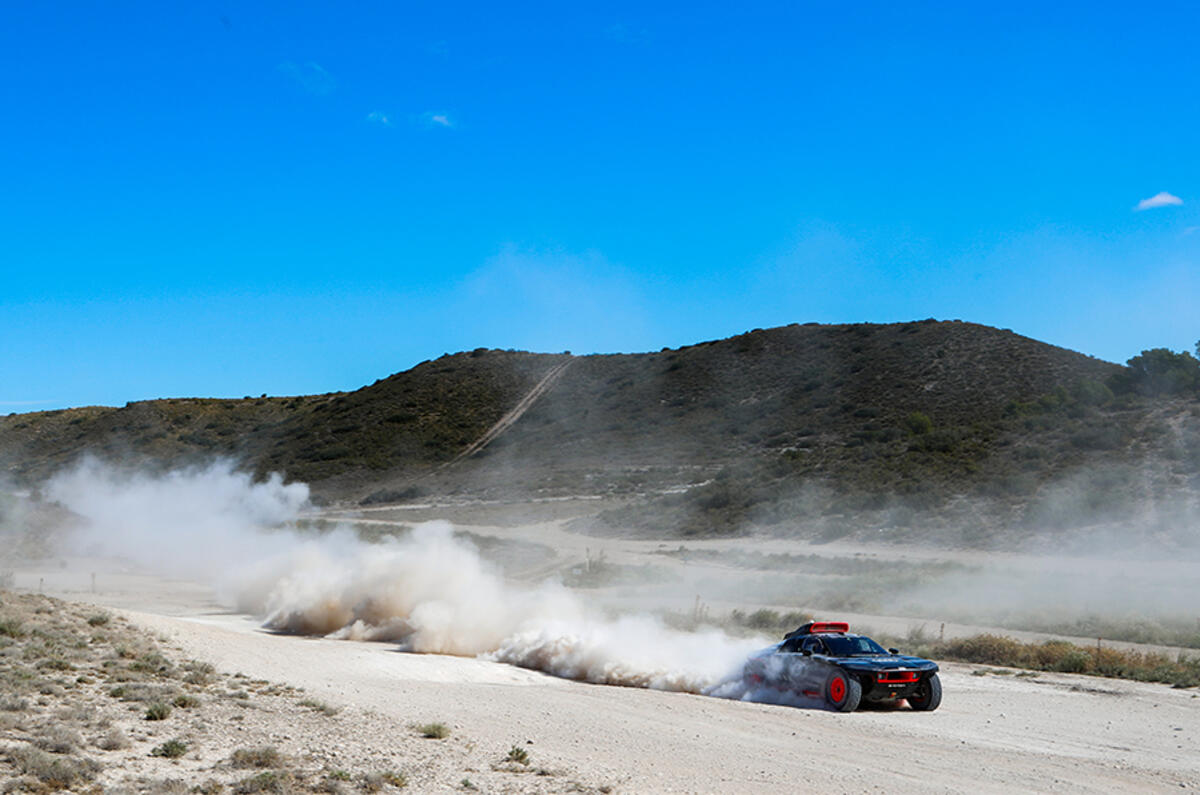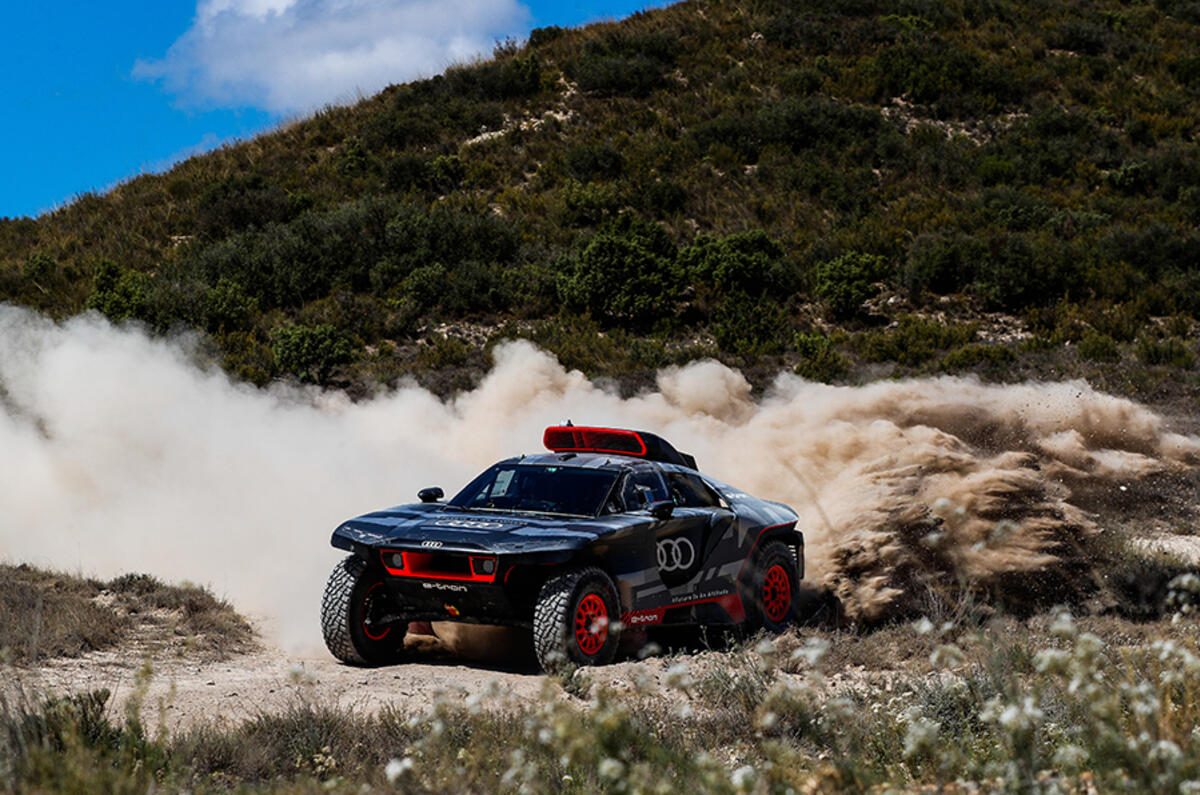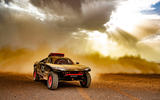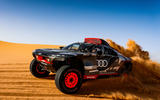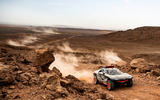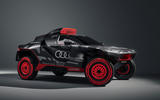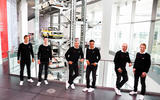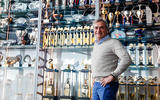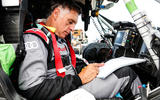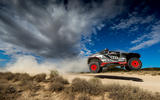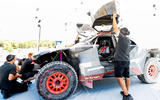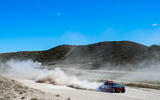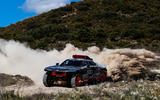If there’s a checklist of iconic motorsport achievements in Audi’s HQ, pretty much every major accolade has been ticked off.
The World Rally Championship? Won. The Pikes Peak hill climb? Scaled. The Le Mans 24 Hours? 13 wins from 18 attempts. Tin-top titles in the US IMSA series, the British Touring Car Championship and the German DTM? Done, done and (more than thrice) done.
Driven by its ethos of ‘Vorsprung durch Technik’ (or ‘progress through technology’), Audi has developed a stellar 40-year reputation for using motorsport to change the game – bringing innovations to racing and rallying that have turned conventional thinking on its head, then honing them to stunning effect on-stage and on-track, before using the knowledge gained to make ever-better road cars.
Now, with its pioneering Audi RS Q e-tron set to take on the world’s toughest off-road endurance event – the Dakar Rally – Audi is aiming to cross another achievement off the motorsport ‘to-do’ list and make history once again. We examine the behind-the-scenes story of this innovative electrified rally racer.
Learn more about Audi’s all-electric e-tron technology

1980-2020: a legacy of innovation
Audi introduced quattro all-wheel-drive to the World Rally Championship in 1981 – winning three events in its debut season, before taking the manufacturers’ title in 1982, the drivers’ title for the late Hannu Mikkola in 1983 and both the drivers’ and manufacturers’ title with Stig Blomqvist in 1984.
Success for Walter Rohrl on the famed Pikes Peak hillclimb in 1987 – followed by wins for the Audi 90 quattro GTO in the 1989 IMSA series, for the Audi V8 quattro in the German DTM and the Audi A4 quattro in the 1996 British Touring Car Championship – only cemented quattro’s reputation.

